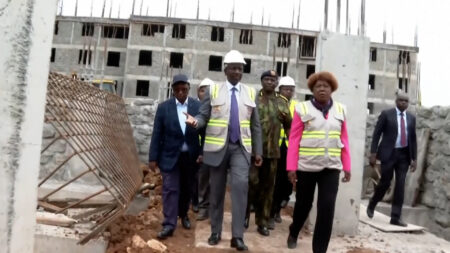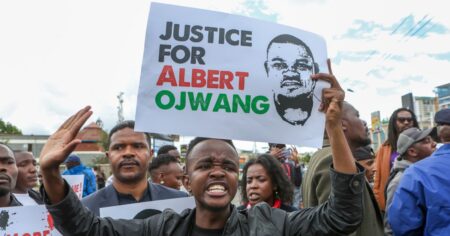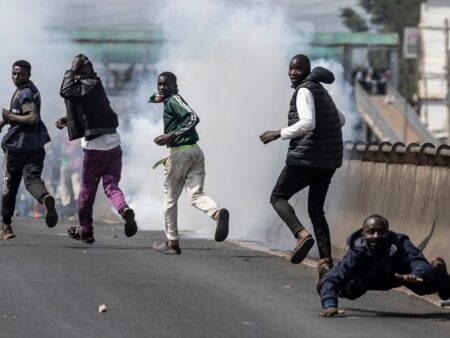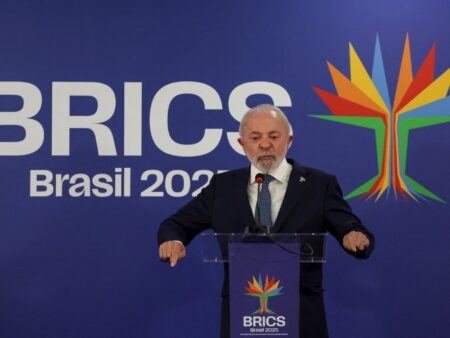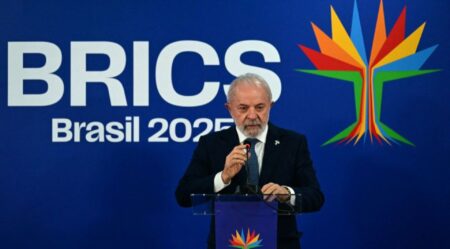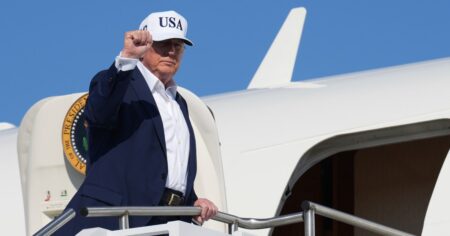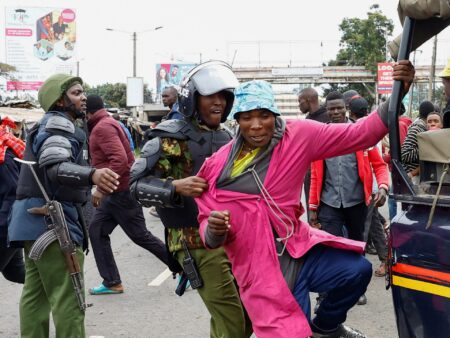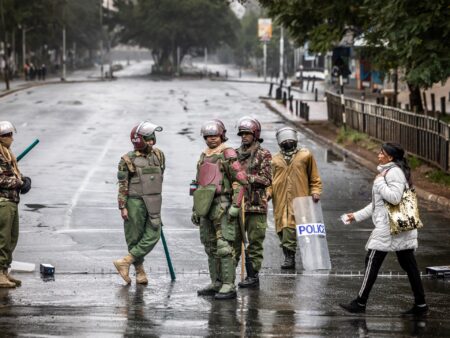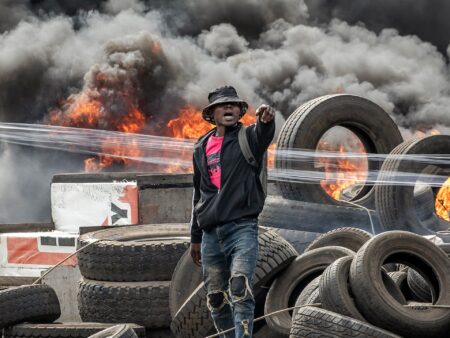US president meets leaders from Gabon, Guinea-Bissau, Liberia, Mauritania and Senegal, with discussions focused on business opportunities.
United States President Donald Trump has met leaders from five African countries as he escalates a trade war that could impact developing countries reliant on commerce with the US.
On Wednesday, Trump hosted leaders from Gabon, Guinea-Bissau, Liberia, Mauritania and Senegal at the White House for talks and a working lunch, with discussions expected to centre on business opportunities, according to a White House official. Trump said the five countries were unlikely to face US tariffs.
During the lunch, Trump said the leaders hail from “very vibrant places with very valuable land, great minerals, great oil deposits and wonderful people”.
“There’s a lot of anger on your continent. We’ve been able to solve a lot of it,” the US president claimed, pointing to a peace agreement leaders of the Democratic Republic of the Congo and Rwanda recently signed at the White House.
Trump also complimented Liberian President Joseph Boakai on his English-speaking skills – despite English being the West African country’s official language.
“Liberia is a longtime friend of the United States and we believe in your policy of making America great again,” said Boakai before advocating for US investment in his country. “We just want to thank you so much for this opportunity.”
Trump responded by inquiring where Boakai got his language skills. “Such good English,” the US president said. “Where did you learn to speak so beautifully?”
Boakai appeared to chuckle. “In Liberia?” Trump asked. “Yes sir,” Boakai said. “That’s very interesting,” Trump said. “I have people at this table who can’t speak nearly as well.”
Liberia was founded by freed US slaves in the 19th century. Its official language in English, though multiple Indigenous languages are spoken there as well.
Trade, investment in focus
For his part, Gabon’s President Brice Oligui Nguema told Trump his country was open to investment and wants to see its raw mineral resources processed locally, but needs large investments in energy to do so.
“We are not poor countries. We are rich countries when it comes to raw materials. But we need partners to support us and help us develop those resources with win-win partnerships,” Nguema said at the meeting.
Senegal’s President Bassirou Diomaye Faye, meanwhile, suggested his country also offered investment opportunities for tourism, including a golf course.
Faye said the course would only be a six-hour flight from New York and suggested Trump could visit to show off his skills.
The US International Development Finance Corporation (DFC) said earlier in the day it would provide project development funding for the Banio Potash Mine in Mayumba, Gabon, helping Gabon reduce its dependence on imports.
“DFC’s efforts not only benefit the countries and communities where they invest but also advance US economic interests by opening new markets, strengthening trade relationships, and promoting a more secure and prosperous global economy,” said DFC head of investments Conor Coleman.
The five countries whose leaders met Trump represent a small fraction of US-Africa trade, but they possess untapped natural resources.
Senegal and Mauritania are important transit and origin countries when it comes to migration, and along with Guinea-Bissau, are struggling to contain drug trafficking, both issues of concern for the Trump administration.
However, African Union officials question how Africa could deepen trade ties with the US under what they called “abusive” tariff proposals and visa restrictions largely targeting travellers from Africa.
The top US diplomat for Africa, Ambassador Troy Fitrell, has dismissed allegations of unfair US trade practices.
Earlier this month, US authorities dissolved the US Agency for International Development and said it was no longer following what they called “a charity-based foreign aid model” and instead will focus on partnerships with nations that show “both the ability and willingness to help themselves”.
Those cuts could result in more than 14 million additional deaths by 2030, research published by The Lancet medical journal showed last week.
Trump is expected to soon announce dates for a broader summit with African leaders, possibly in September around the time of the United Nations General Assembly.
Read the full article here








